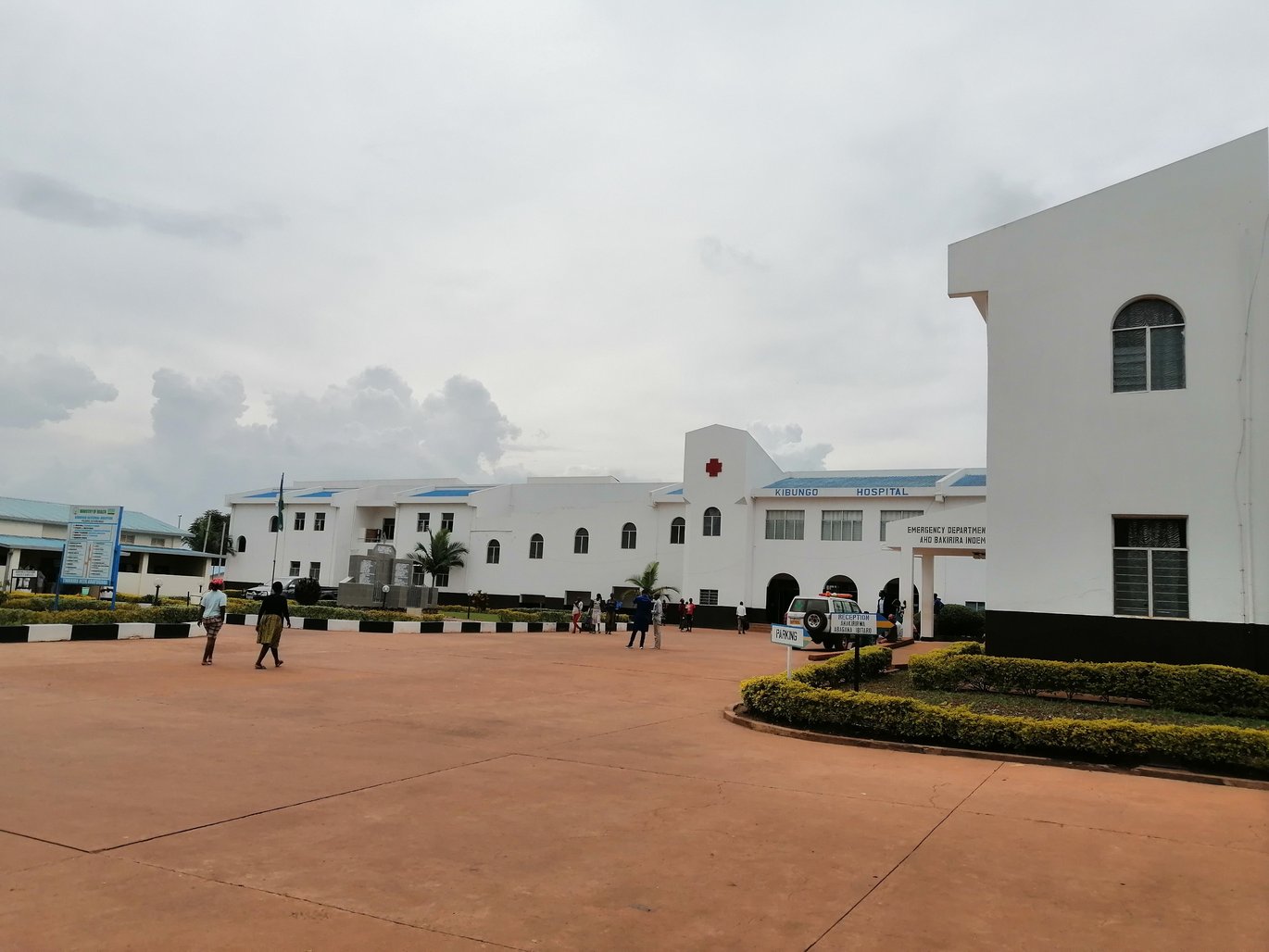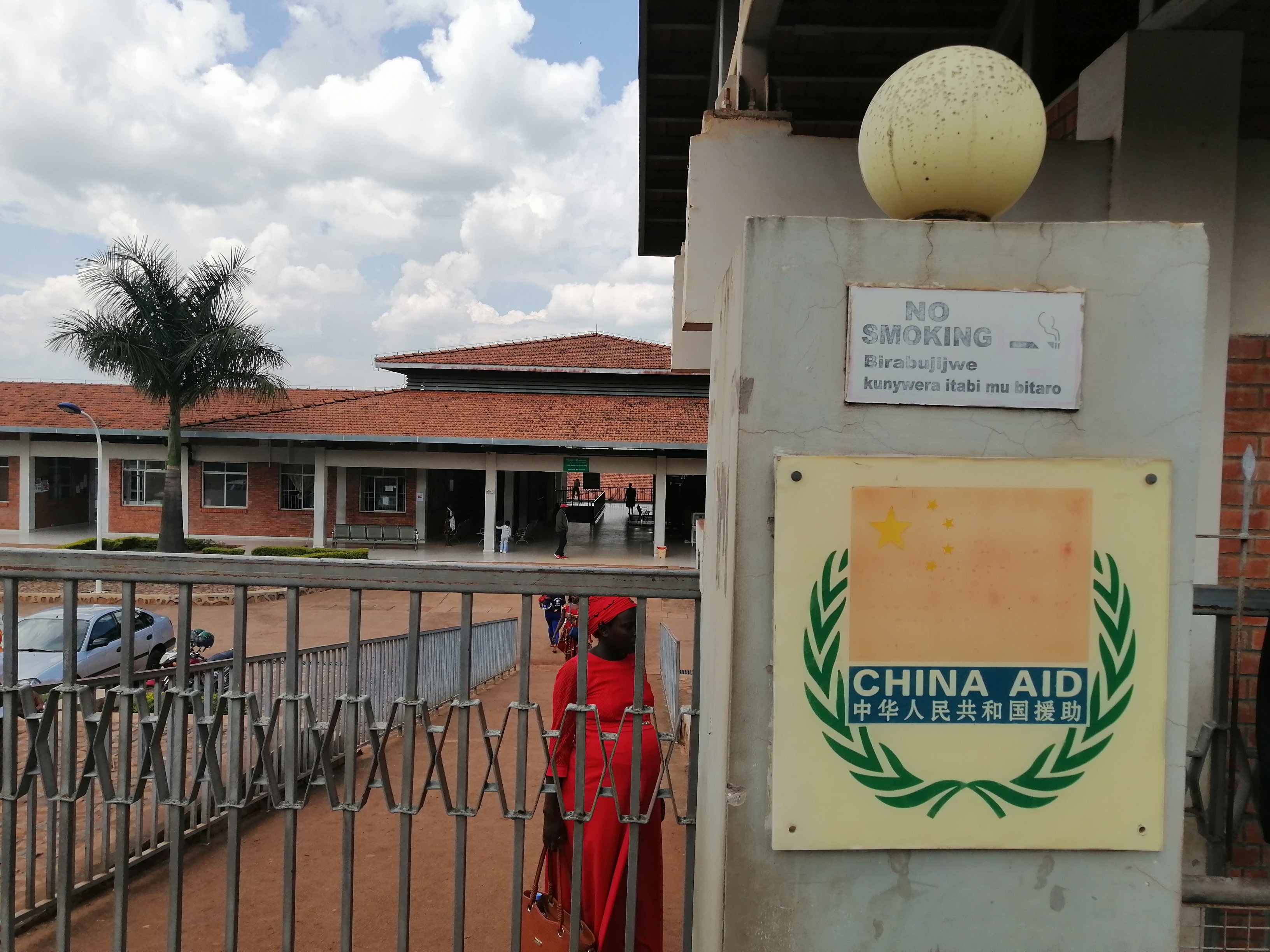"Can you help me find Chinese medicines and ask Dr. Zhao to come back to Rwanda to treat me"?
Quote and photo from the field. By ESR Olivia Fifi Gieskes


All ESR's are on fieldwork in various parts of Africa in 2019. As part of the dissemination they will be sending a photo and a quote from the field while they are away.
-------------------------------------------------------
This photo and quote from the field comes from ESR Olivia Fifi Gieskes who is doing her fieldwork in Rwanda on aid practices of Chinese Medical teams. Read more about her research here
Maria [pseudonym] is paralysed. She started feeling unbearable pains in her muscles in 1993. During the 1994 genocide she was assaulted and became paralysed from the neck down. After surviving the genocide, local Rwandan doctors did all they could to treat Maria’s condition, to no avail. She recalls: “the Rwandan doctors could not diagnose my condition and told me I was a hopeless case, they told me I would never be able to move my arms and legs again”. In 1995 she started receiving treatment from a traditional Chinese doctor called Dr. Zhao[pseudonym] who was dispatched by the Chinese government as part of a medical team to provide health care services at Kibungo hospital in Ngoma, Eastern Province. Dr. Zhao had brought traditional medicines from China and also started treating Maria with acupuncture. She noted minor improved sensations and after a while was able to slightly move her left arm. Dr. Zhao offered a transfer to China where Maria could receive an advanced rehabilitation treatment with Chinese medication.
“The Rwandan doctors rejected the request because they did not believe it was acupuncture and the Chinese medicines which improved the ability to move my left arm. The problem was that they could not explain the Chinese medication scientifically. But I was the living proof that it worked! Instead, I was sent to Kenya for treatment and told to proceed with Western medicines. Nothing changed after Kenya and the medicines I had to take only made me feel sick. After that, the Rwandan doctors admitted that maybe it was the treatment of Dr. Zhao which had caused the improvement. But everything changed. The Chinese doctors who now work in Rwanda can no longer bring those Chinese medicines because of regulations. Dr. Zhao really gave me hope I could be healed. If I can move my left arm today, it is because of Dr. Zhao’s treatment.
During my fieldwork in Kibungo and Masaka hospitals, I met patients who for years had received health care services from Chinese doctors, and whose stories, similarly to Maria’s, revealed the complexities of how Chinese health practices are constituted in Rwanda. Patients attributed rapid and miraculous healing effects to traditional Chinese medicines, mostly praising the absence of physical side-effects which they often got from using ‘Western’ medicines. They lamented how in recent years, sought-after traditional Chinese medicines were no longer accessible due to Rwandan regulations.
Rwanda is home to one of Africa’s most advanced healthcare system among others in terms of health insurance coverage and pharmacovigilance systems. The progresses in health security in Rwanda are effectuated through effective bureaucratic structures and regulatory mechanisms which aims at ensuring access to qualitative health care services and medicines. A part of my research explores locally anchored emic views on Chinese health practices and how Chinese health interventions are conditioned by institutional configurations with the aim to apprehend varied implications for local recipients of Chinese health assistance. These issues are particularly relevant as China’s engagements as a health donor in Rwanda is expanding.
Rwanda has received health assistance from the Chinese government since 1982. The medical cooperation between both countries encompasses two-Chinese funded facilities: Kibungo referral hospital and Masaka district hospital in Kigali city, Chinese medical teams who are dispatched to Rwanda on a 1-year mission to provide primary healthcare services, scholarships for Rwandan medical students and donation of medical equipment and medicines. Masaka hospital will transition from a district hospital to a referral hospital through The Masaka Expansion Project, a parallel infrastructure project, which will result in a new urban planning and be one of the largest hospital plans financed by the Chinese government. The burgeoning Chinese health interventions, locally dubbed “big aid”, are accompanied by great expectations exemplified by Maria’s last query to me after our interview: “the Chinese are giving more aid, so can you help me find Chinese medicines and ask Dr. Zhao to come back to Rwanda to treat me?”